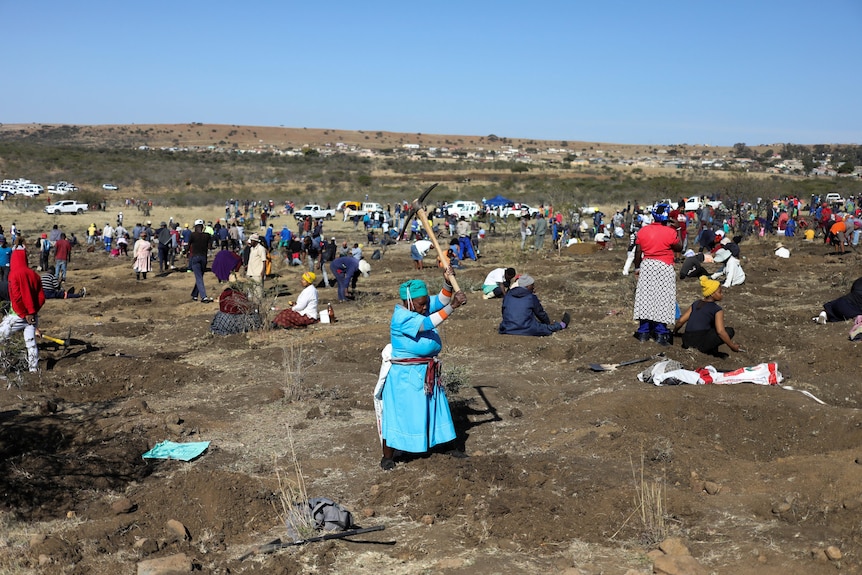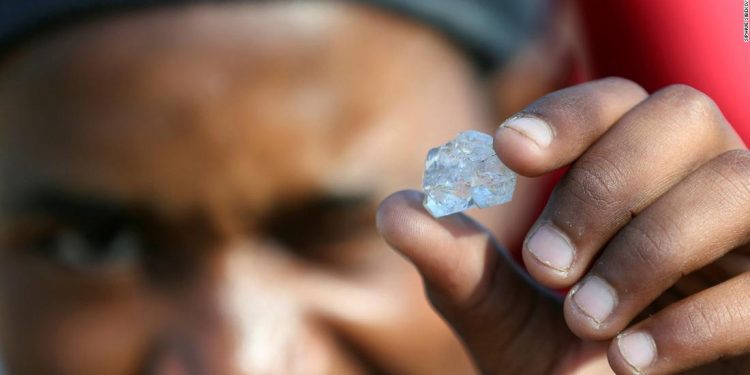By John Ikani
The South African government says that stones found in a village last month are not diamonds but quartz.
People from across South Africa travelled to KwaHlathi in eastern KwaZulu-Natal province where villagers had been digging with picks and shovels since 12 June after a herder discovered the first stone in an open field and put out the word.

Provincial executive council member for economic development and tourism, Ravi Pillay, told a media briefing on Sunday he had counted some 3,000 diggers there during a visit to the site.
The rush prompted the government to send geoscientists and mining experts to collect samples for testing.
“The tests conducted conclusively revealed that the stones discovered in the area are not diamonds,” said provincial executive council member for economic development and tourism, Ravi Pillay,
“The value, if any, of the quartz crystals is yet to be established, but it must be mentioned that the value of quartz crystals is very low compared to that of diamonds.”
The report said the site — more than 300 kilometres south-east of Johannesburg — was near a sill of volcanic rock named dolerite, “which is not in a zone where diamond occurrences are present”.
What you should know
The discovery of what was believed to be diamonds in KwaHlathi exposed deep frustrations of communities desperate to find a way out of poverty.
The country, renowned for its mineral wealth, has struggled with decades of spiralling unemployment worsened by the coronavirus pandemic.
The diamond rush “highlighted the socio-economic challenges confronting people in the area”, a local government statement said.
Meanwhile, the number of people mining the land had dwindled to less than 500, Pillay said, though significant damage had already been done with an area of about 5 hectares (12 acres) covered in holes of up to one metre, posing a danger to cattle.
He said those who continued to mine – a situation that also risks the spread of Covid – would be encouraged to leave, and law enforcement could be drawn upon if necessary.




































